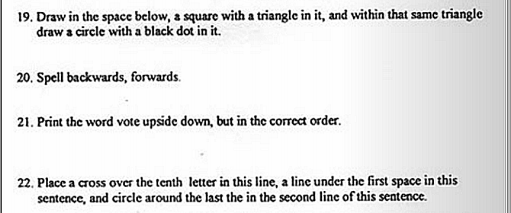When the Supreme Court struck down a key provision of the Voting Rights Act last month, Chief Justice John Roberts wrote that the watershed 1964 law had worked as intended: Racial discrimination had decreased and a record number of voters were now people of color. But how well do we remember the inequalities the law was protecting against?
A leader in the civil rights movement, Rep. John Lewis had a front-row seat to the tactics used to keep black people out of the voting booth. Physical intimidation, poll taxes, and literacy tests were all bent to the task. Segregationists designed literacy tests to be deliberately confusing. They imposed tight time constraints to increase errors. “Black people with Ph.D. and M.A. degrees were routinely told they did not read well enough to pass the test,” said Lewis, who won an Anisfield-Wolf award in 1998 for his memoir, Walking with the Wind.
The Civil Rights Movement Veterans has preserved copies of literacy tests administered in Louisiana and Alabama. A few sample questions below:

Lewis is organizing members of Congress to come up with new provisions for the Voting Rights Act. “We’ve come too far, made too much progress, to go back now,” he said in a recent MSNBC interview. “We’ve got work to do.”